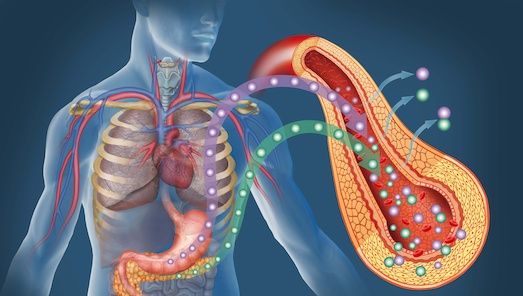Type 1 Diabetes Linked to Gut Inflammation
There's a potential link between changes in the gut and type 1 diabetes.

New evidence has pointed to a potential correlation between alterations in the digestive system and type 1 diabetes.
Scientists have noticed that unlike people who don’t have diabetes or suffer celiac disease, some patients with type 1 diabetes show signs of different gut bacteria and inflammation in their digestive tracts.
Since prior research has hypothesized that the gut could be partially responsible for the development of type 1 diabetes, new research aimed to focus on examining how the disease could, in turn, affect the digestive system and microbiome.
Lorenzo Piemonti, MD, Diabetes Research Institute at San Raffaele Hospital, Milan, Italy, said in a news release, “For years, we have looked for the cause of type 1 diabetes in the pancreas. Perhaps, we looked in the wrong place and there is the possibility that the intestines play a key role in the development of the disease.”
The recent study conducted at San Raffaele Hospital in Milan, Italy, analyzed the microbiome of 54 individuals who had undergone endoscopies and biopsies (between 2009 and 2015) of the duodenum — the first part of the small intestine.
The patient population included: 19 with type 1 diabetes, 16 healthy individuals in the control group, and 19 with celiac disease. They noted that up to 11% of patients with type 1 diabetes also suffer from celiac disease.
While other studies typically only rely on stool samples for analysis, this method actually allowed researchers to bypass extraneous factors and directly examine the gastrointestinal tract and bacteria. Tissue analysis from endoscopies seemingly provided researchers with “high-resolution snapshots” of the gastrointestinal tract’s innermost layer.
Essentially their findings suggested that the small intestine could be more relevant to type 1 diabetes, since these diabetes patients showed significantly more inflammation in the gut’s mucous membrane linked to 10 specific genes than those with celiac disease or the control group. The patients also manifested distinct combinations of gut bacteria
While it’s too soon to “draw definitive conclusions,” Piemonti explained their findings “indicate the individuals with Type 1 diabetes have an inflammatory signature and microbiome that differ from what we see in the people who do not have diabetes or even in those with other autoimmune conditions such as celiac disease”.
However, further confirmation of these findings could pave the way to develop new treatments in patietns with a high risk of developing type 1 diabetes.